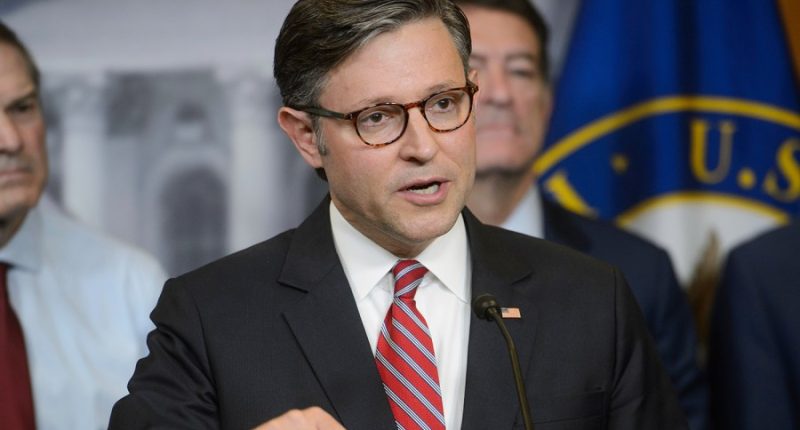Share this @internewscast.com

House Republicans on Wednesday greenlighted a series of “technical changes” to the party’s tax cut and spending package, removing language that would have thrown their effort off course in the Senate.
The chamber approved the tweaks which were tucked inside a procedural rule for a separate measure in a 213-207 vote, weeks after Republicans passed the sprawling package full of President Trump’s legislative priorities. Rep. Thomas Massie (R-Ky.) was the lone GOP “no” vote.
The adopted rule also tees up a final vote on the White House’s bill to claw back $9.4 billion in federal spending.
House GOP leaders moved to make the changes after the Senate parliamentarian scrubbed through the legislation a procedure known as the “Byrd bath” and identified provisions and language that do not comply with the strict rules for the budget reconciliation process, which the GOP trifecta is using to circumvent a Democratic filibuster in the Senate and approve the bill by a simple majority.
Leaving the legislation as it was risked the parliamentarian ruling that it was not compliant, which would have resulted in the threshold for passage in the Senate increasing from a simple majority to 60 votes allowing Democratic opposition to block it.
The changes to the Trump agenda bill officially titled the One Big Beautiful Bill Act pertain to defense funding, energy policy and changes to Medicaid.
For defense, Republicans nixed $2 billion for the enhancement of military intelligence programs; $500 million for the development, procurement and integration of maritime mines; and $62 million to convert Ohio-class submarine tubes to accept additional missiles.
On the energy front, meanwhile, the changes removed a provision that would have reinstated leases for a proposed copper and nickel mine that had been renewed under the first Trump administration but revoked under former President Biden. The mine would have been near an area known as the Boundary Waters Canoe Area Wilderness, a nature preserve that contains canoe routes and species including black bears, moose and foxes.
While leaders moved to strike some portions of the bill, they still plan to fight for those provisions when the package hits the Senate floor.
“We disagree; ultimately we’re going to try it again on the Senate floor,” House Majority Leader Steve Scalise (R-La.) said Tuesday. “ We disagree with the parliamentarian. … But you can’t take the risk on any of them. You cannot take the risk because if any one of them is ruled on the Senate floor to be fatal, it’s a 60-vote bill. The whole bill is a 60-vote bill you can’t take that risk.”
With the changes made, the House is now expected to formally send the package to the Senate, where Republicans are mapping out their own changes to the behemoth bill. Some GOP senators want to decrease the state and local tax deduction cap, others are pushing to increase the spending cuts in the bill, and a subset are pressing for a smaller rollback of the green energy tax credits that Democrats approved in 2022.
Any changes to the House bill in the Senate, however, risks party leadership losing support in the lower chamber, which will have to approve the Senate’s tweaks before the bill can head to Trump’s desk for signature.
Party leaders are still hoping to enact the package by July 4, but that timeline is coming into serious question as Republicans remain at odds over a series of high-stakes issues.
Rachel Frazin contributed.











